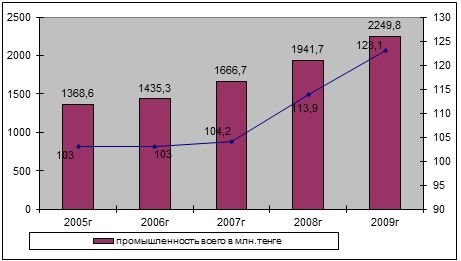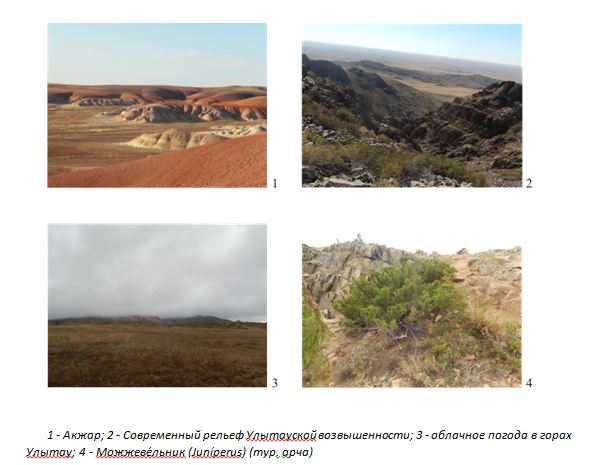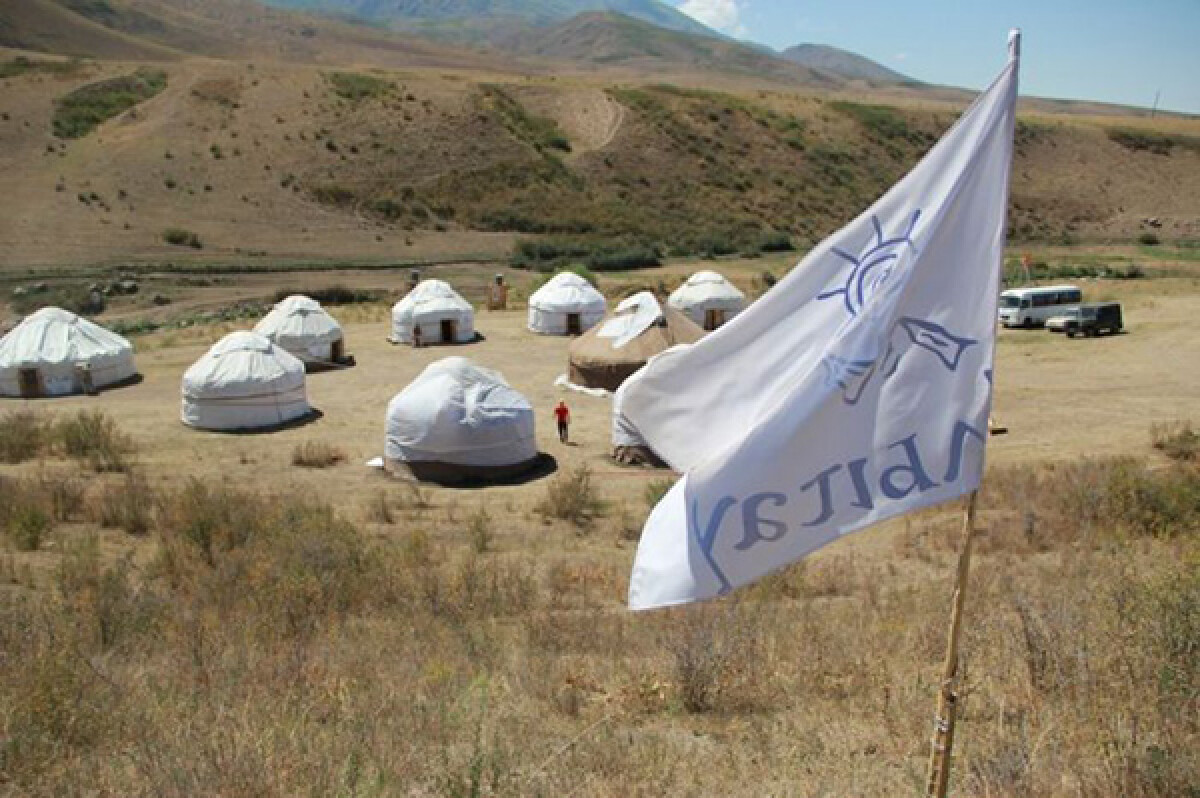
Historians-archaeologists, geographers, biologists, botanists, experts on tourism and operators of unmanned aerial vehicles, who conducted works on mapping and search for new archaeological objects, participated in the expedition. The Kazakhstan National Geographic Society has summarized preliminary results of the expedition: information about economic and geographical features of local towns has been collected.
Geography
Ulytau district is located in the western part of Karaganda region. It is the biggest administrative unit in the Republic of Kazakhstan. It contains a total area of 12 293 105 ha (28,7% of the region). Ulytau village is an administrative center of the district. The distance from regional center is 700 km. As of 1 January 2013, the population of the district is 13 840 people (1,1% of the population of the region). The district has 12 rural, 3 village areas 29 rural settlements.
Protected areas
There is the Ulytau State Natural Reserve with a total area of 19,3 thousand ha.
Water resources
The specific characteristic of hydrography in the district is a sparse river network. The biggest rivers in the district are Karakengir, Sarykengir, Sarytorgay, Ulken, Zhezdi, Bleuti, Karatorgay, and Sarysu. Shallow lakes which dry out partially are typical for this place. There are the following lakes in the district: Barakkol, Koskol, Kumkol, Ashchykol with an average depth of 10-15 meters. Ulytau district is rich in various water springs.
Climate
The climate is extremely continental. Winters are severe and with little-snow, the average temperature is 20-25 degrees below zero. Summers are hot and dry; the average temperature is 25-30 degrees above zero.
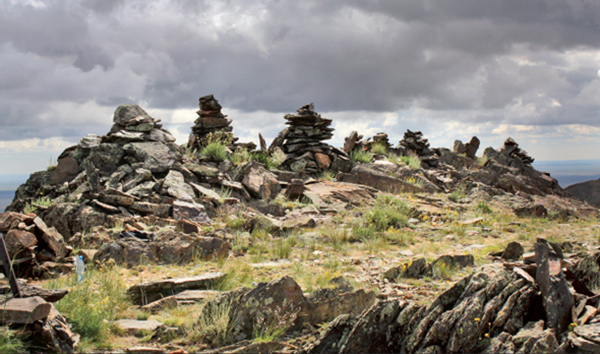
Aulie Mountain
Flora and fauna
The fauna in the region is diverse. Saiga, wolf, fox, hare, deer, wild boar, polecat, gazelle, and reptiles (steppe viper, lizard, sheltopusik) are spread on that territory. The following bird species can be found in the district: duck, swan, eagle, owl, eagle-owl, grey goose, crane, bustard, woodpecker, cuckoo and other. Kazakhstan’s Red Book contains firs growing in Ulytau Mountains and birches which are rare in Central Kazakhstan.
Industry
The Industry of Ulytau district is presented by mining and manufacturing sectors, distribution of water and energy. Among large and medium-sized enterprises are the following: Orba Tas LLC, Ak Tas LLC, Karsakbay Metallurgical Plant under the Kazakhmys Corporation, Ulytau State Enterprise, Zhezbulak State Enterprise.
From 2008 to 2012 industrial output of the district decreased from 897,6 to 393 million tenge (44%). In 2009 the volume was increased by 105%.
Dynamics of volume index and output in 2007-2011
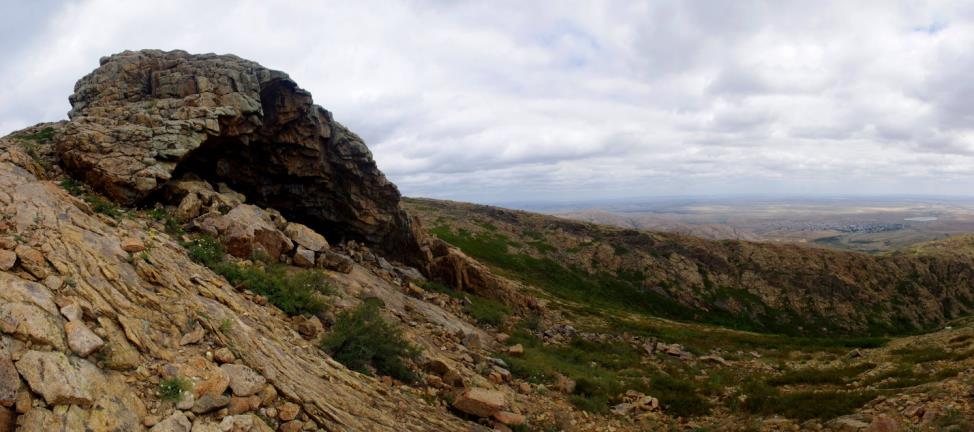
Sacred cave on the highest point of Aulie Mountain
This was the place where the President of Kazakhstan shared his thoughts about Kazakhstan’s future, thereby underscoring the significance of this site both for the region and the whole country. In his interview Nursultan Nazarbayev noted that Ulytau is a sacred place for each Kazakh. The President believes that it is necessary to turn this cradle of Kazakh ethnos into tourist attraction. He noted that "in future it will be considered as a tourist place and the site of the respect for memory of our ancestors".
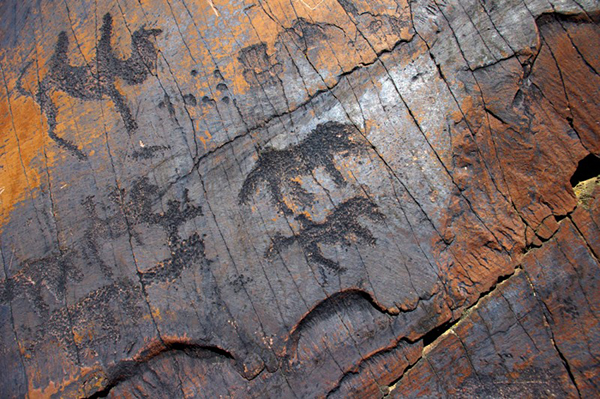
Petroglyph Tamdy in Ulytau
The land of Ulytau was always holy for Kazakhs; it gave them metal for producing tools and weapons, served as pasture for flocks of sheep and herds of horses. The road of nomads met on this land and Ulytau became a place of communication between all Kazakh clans. Thus Kazakh language remained common without notable dialects during centuries.
1. Akzhar; 2. Modern relief of Ulytau highlands; 3. Cloudy weather in Ulytau; 4. Juniper
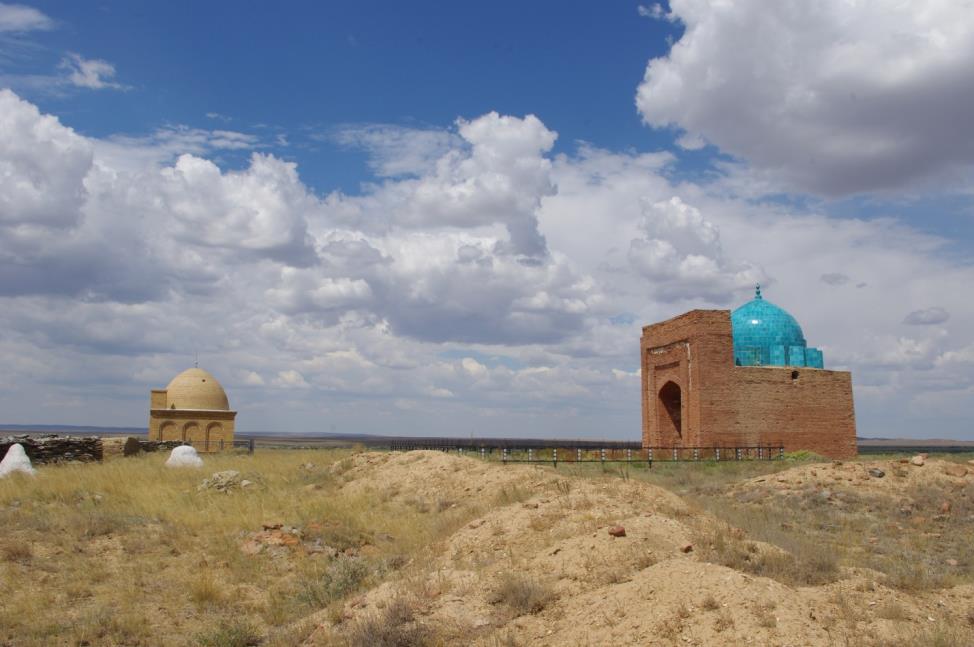
Mausoleum of Zhoshy Khan
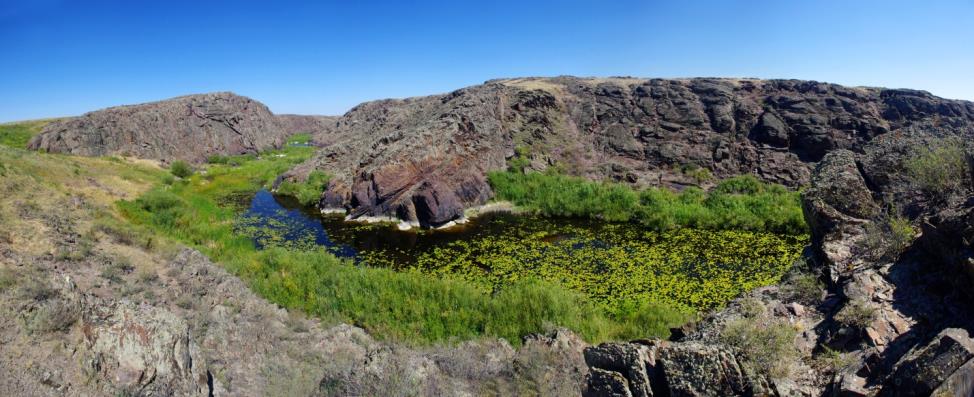
Panorama of the Tamdy River
